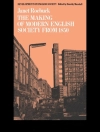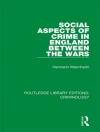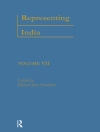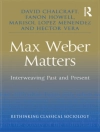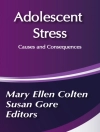‘Decentering’ has fast become a dynamic approach to the study of American cultural and diplomatic history. But what precisely does decentering mean, how does it work, and why has it risen to such prominence? This book addresses the attempt to decenter the United States in the history of culture and international relations both in times when the United States has been assumed to take center place. Rather than presenting more theoretical perspectives, this collection offers a variety of examples of how one can look at the role of culture in international history without assigning the central role to the United States. Topics include cultural violence, inverted Americanization, the role of NGOs, modernity and internationalism, and the culture of diplomacy. Each subsection includes two case studies dedicated to one particular approach which while not dealing with the same geographical topic or time frame illuminate a similar methodological interest. Collectively, these essays pragmatically demonstrate how the study of culture and international history can help us to rethink and reconceptualize US history today.
Tabela de Conteúdo
List of Illustrations
Editor’s Preface
List of Contributors
Introduction: Decentering American history
Jessica C. E. Gienow-Hecht
PART I: INVERTING AMERICANIZATION
Chapter 1. Who said ‘Americanization’? The case of twentieth-century advertising and mass marketing from a British perspective
Stefan Schwarzkopf
Chapter 2. Die antideutsche welle: The anti-German wave, public diplomacy, and intercultural relations in Cold War America
Brian C. Etheridge
PART II: INTERNATIONALISM
Chapter 3. Chinese debates on modernization and the west after the Great War
Dominic Sachsenmaier
Chapter 4. ‘For the genuine culture of the Americas’: Musical folklore, popular arts, and the cultural politics of Pan-Americanism, 1933–50
Corinne A. Pernet
PART III: NON-GOVERNMENTAL INFLUENCES
Chapter 5. ‘The other side of the war’: Memory and meaning at the war Remnants Museum of Vietnam
Scott Laderman
Chapter 6. Americanized protests? The British and West German protests against nuclear weapons and the pacifist roots of the West German new left, 1957–64
Holger Nehring
PART IV: CULTURAL VIOLENCE
Chapter 7. Misperceptions of empire: How Berlin and Washington misread the ‘ordinary Germans’ of Latin America in World War II Max
Paul Friedman
Chapter 8. Rape and murder in the canal zone: Cultural conflict and the US military presence in Panama, 1955–56
Michael E. Donoghue
PART V: DECENTERING THE WORLD? THE CULTURE OF DIPLOMACY
Chapter 9. The marriage of Thames and Rhine: Reflections on the English-Palatine relations 1608–32 and the culture of diplomacy in early modern Europe
Magnus Rüde
Chapter 10. Self-perception, the official attitude toward pacifism, and great power détente: Reflections on diplomatic culture before World War I
Friedrich Kießling
Notes on contributors
Bibliography
Index
Sobre o autor
Jessica C. E. Gienow-Hecht is Professor of History at the John F. Kennedy Institute for North American Studies at the Free University of Berlin.


